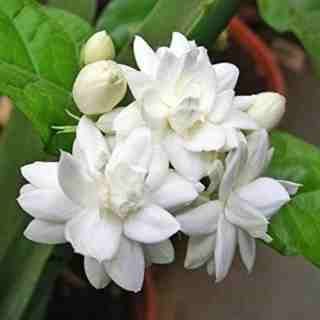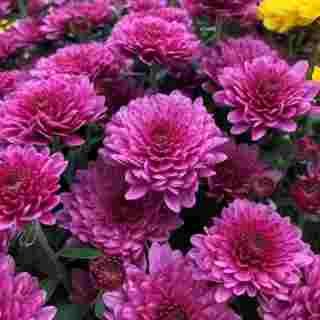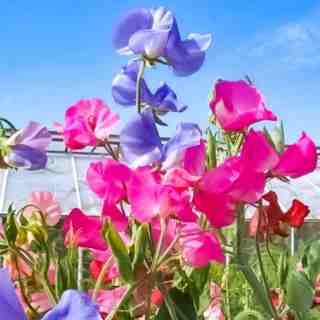
Table of Contents
Introduction
Welcome, dear flower enthusiasts, to a mesmerizing expedition through the realm of blossoms! Join us on this enchanting guide as we explore “Flowers Name in English with Photos,” offering you a glimpse into the spellbinding beauty of various blooms.
Exploring Flowers Name in English with Photos
Botanical Insights
Delve into the botanical intricacies of flowers, weaving our keyword into discussions on nomenclature for a deeper understanding.
Cultural Significance
Explore the cultural tapestry woven by different flowers, highlighting the keyword in sections discussing their names and cultural connections.
Seasonal Variations
Present flowers based on seasons, consistently using our keyword to anchor discussions around the central theme.
Symbolism and Meanings
Discuss the rich symbolism and meanings associated with flowers, ensuring our keyword is seamlessly woven into these insightful explorations.
A Symphony of Colors: Flowers Name in English with Photos
Color Palette Analysis
Embark on a visual journey through color, integrating our keyword into discussions about the visual appeal of various flowers.
Garden Planning Tips
Offer practical advice for garden planning, naturally embedding our keyword to guide readers in creating their own floral haven.
Growing Your Knowledge: Flowers Name in English with Photos
Educational Resources
Mention valuable educational resources related to flower identification in English, subtly reinforcing our keyword and encouraging further learning.
CTA (Call-to-Action)
Wrap up our journey with a compelling call-to-action, reiterating our keyword and encouraging readers to explore more about “Flowers Name in English with Photos.”
Flowers Name in English and Hindi: A Blossoming Table
| English Name | Photos | Hindi Name |
|---|---|---|
| Rose |  | गुलाब |
| Sunflower |  | सूरजमुखी |
| Lily |  | कुमुद |
| Orchid |  | ऑर्किड |
| Tulip |  | ट्यूलिप |
| Daisy |  | डेजी |
| Marigold |  | गेंदा |
| Lavender |  | लैवेंडर |
| Peony |  | पियोनी |
| Jasmine |  | चमेली |
| Daffodil |  | डैफोडिल |
| Bluebell |  | ब्ल्यूबेल |
| Chrysanthemum |  | कृष्णकमल |
| Pansy |  | पैंसी |
| Poppy |  | पॉपी |
| Hydrangea |  | हाइड्रेंजिया |
| Iris |  | आईरिस |
| Gerbera |  | गरबेरा |
| Carnation |  | कार्नेशन |
| Zinnia |  | जिनिया |
| Hibiscus |  | गुड़हल |
| Cosmos |  | कॉसमोस |
| Dahlia |   | डालिया |
| Azalea |  | अज़ालिया |
| Foxglove |  | फॉक्सग्लव |
| Bleeding Heart |  | ब्लीडिंग हार्ट |
| Magnolia |  | मैग्नोलिया |
| Narcissus |  | नार्सिसस |
| Ranunculus |  | रैनंक्युलस |
| Snowdrop | स्नोड्रॉप | |
| Sweet Pea |  | स्वीट पी |
| Camellia |  | कैमेलिया |
| Anemone |  | एनेमोनी |
| Forget-Me-Not |  | फॉरगेट-मी-नॉट |
| Dandelion |  | डैंडेलायन |
| Gladiolus |  | ग्लेडियोलस |
| Lilac |  | लाइलैक |
| Freesia |  | फ्रेशिया |
| Ranunculus |  | रैनंक्युलस |
| Verbena |  | वर्बेना |
| Wisteria |  | विस्टेरिया |
| Water Lily |  | वॉटर लिली |
| Yarrow |  | यैरो |
| Snapdragon |  | स्नैपड्रैगन |
| Rosemary |  | रोजमैरी |
| Nasturtium |  | नेस्टर्शियम |
| Petunia |  | पच्चुनिया |
| Phlox |  | फ्लॉक्स |
What does 100 red roses mean?
devotion
Sending roses have a beautiful sentiment behind them, conveying deep emotions of love and admiration. And sending 100 red roses has the hidden meaning of devotion, which is such a sweet message to send your true love.
Are red roses lucky?
Red. The most classic of them all, a red rose is a perfect choice for a significant other. This stunning shade most popularly stands for passion and communicates love. It’s the rose of romance and deep feelings, but can also relay desire, beauty, victory, harmony, joy, luck, pride, martyrdom, according to McCord Jones.
Conclusion
As we conclude our journey through the mesmerizing world of flowers, we hope you’ve enjoyed this visual feast of blooms. “Flowers Name in English with Photos” is not just a guide; it’s an invitation to connect with nature’s poetry.
Get ready to dive into the enchanting universe of flowers, armed with knowledge about their names and adorned with the visual beauty captured in each photo. Happy blooming!
FAQs (Frequently Asked Questions)
- Q: How many flowers are featured in this guide? A: We’ve showcased 50 beautiful flowers, each with its English and Hindi names.
- Q: Are these flower names suitable for a garden in any climate? A: Absolutely! The guide includes a diverse selection suitable for various climates.
- Q: Can I use this guide for educational purposes? A: Certainly! Feel free to use this guide for educational and learning purposes.
- Q: Are there any rare or exotic flowers mentioned? A: Yes, we’ve included a mix of common and rare flowers to enhance your floral knowledge.
- Q: Where can I find more information about flower cultivation? A: For further insights, check out our recommended educational resources in the “Growing Your Knowledge” section.